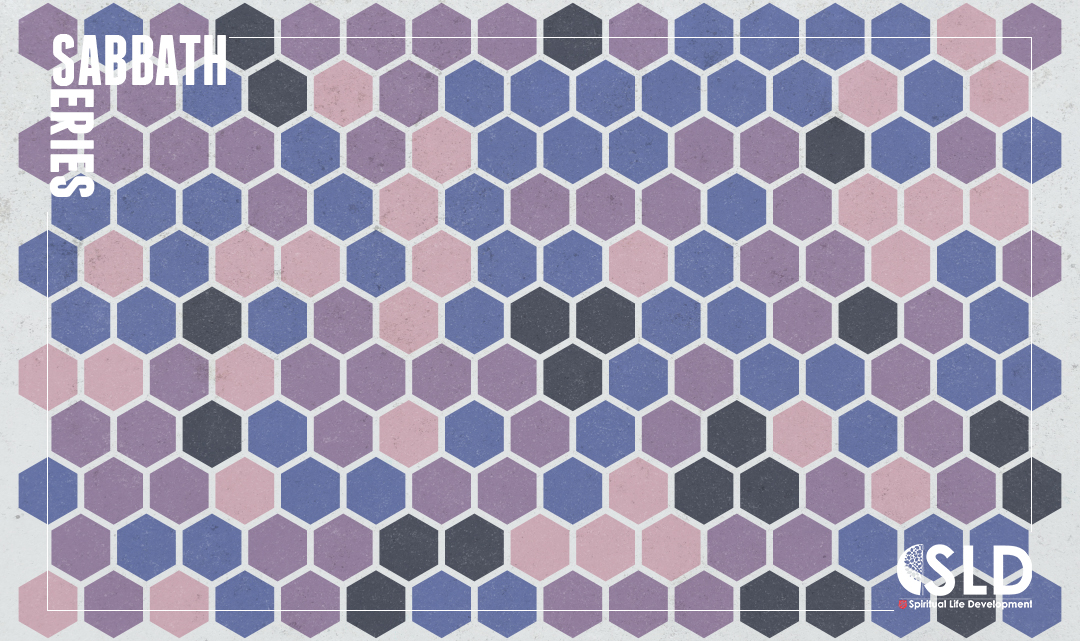 When we look at the very beginning of the Bible, I believe that God gives us a clear admonishment that is foundational not just for Old Testament covenant followers. After completing the work of creation in Genesis 2, God stopped. Period. “By the seventh day God had finished the work He had been doing; so on the seventh day He rested from all His work. God blessed the seventh day and made it holy” (Genesis 2:2-3). This is the first use of qadosh, “holy“, in the Jewish Scripture. I realize the profound statement God is making here. In essence I hear rather loudly, “I am God, nothing is beyond me, nothing is impossible for me, I made and created everything and prior and during the making of your little world I made the cosmos. Do you really think I needed to rest? Do you think this statement was for me?”
When we look at the very beginning of the Bible, I believe that God gives us a clear admonishment that is foundational not just for Old Testament covenant followers. After completing the work of creation in Genesis 2, God stopped. Period. “By the seventh day God had finished the work He had been doing; so on the seventh day He rested from all His work. God blessed the seventh day and made it holy” (Genesis 2:2-3). This is the first use of qadosh, “holy“, in the Jewish Scripture. I realize the profound statement God is making here. In essence I hear rather loudly, “I am God, nothing is beyond me, nothing is impossible for me, I made and created everything and prior and during the making of your little world I made the cosmos. Do you really think I needed to rest? Do you think this statement was for me?”
It is clear that God rested after He created and that rest was for His creation’s sake. Sabbath is God telling us that we are not God. It is Him telling us that all of our great accomplishments need to be put in the context of our finiteness. Sabbath is God telling us that we need to tap in to Him as Author and Creator. This is not limited to being an Old Testament commandment. Many of us revel in the fact that Christ was not subject to the Sabbath but on occasion broke the Sabbath. He told us that the Sabbath is made for the people and He, Jesus, is the Lord of the Sabbath. (Mark 2:28). However, it should be noted that Jesus was also a consummate partaker of Sabbath. Time and time again, Jesus shows us the needs of His finite body as He pulls away in the midst of all kinds of urgent matters. He pulled away even in the wilderness in the evening of His rest.
In keeping the Sabbath holy, we enter in to a space and time of openness to God, the kind of time we experience when we enter a house of prayer
In Ezekiel (20:12-13, 21) God speaks of having given the people the Sabbath as a sign of Holy Covenant between them, but the people desecrated the Sabbath, and, in doing so, lost their understanding of God – the relationship was defiled. Rabbinical scholar Abraham Heschel shared “The ten commandments do not command the building of a temple or altar. They don’t command attending a worship service or participating in some of the spiritual disciplines we consider normative for people of faith. What the commandments do command is the sanctification of the seventh day. In keeping the Sabbath holy, we enter in to a space and time of openness to God, the kind of time we experience when we enter a house of prayer.”
Heschel wrote of how significant this “temple in time” was for the Jews. They could enter its holy space of remembering God’s faithfulness wherever they were – in the desert, in exile, in labor camps, even in times that were distractingly plentiful and productive. We have and will continue to have a need to shelter ourselves from the winds of culture and the nattering of our own concerns. Unfortunately, as individuals and as a people, we haven’t fully taken advantage of this shelter. Susan Phillips, professor of Sociology and Christianity at Berkeley, writes, “Sabbath allows repentance, remembrance and renewal. Sabbath frees us for a time from legitimating social structures and mental constructs, important as those are. It extracts us from productivity, consumption, and efficiency – the engines of our modern culture. It acquaints us with our finitude: embodiment, temporality, mortality. Jewish and Christian writers on the subject of Sabbath, like Herschel and Eugene Peterson, affirm that creation and eternity meet in the Sabbath.”
Written by Major Raphael Jackson
Divisional Commander, Northern New England




